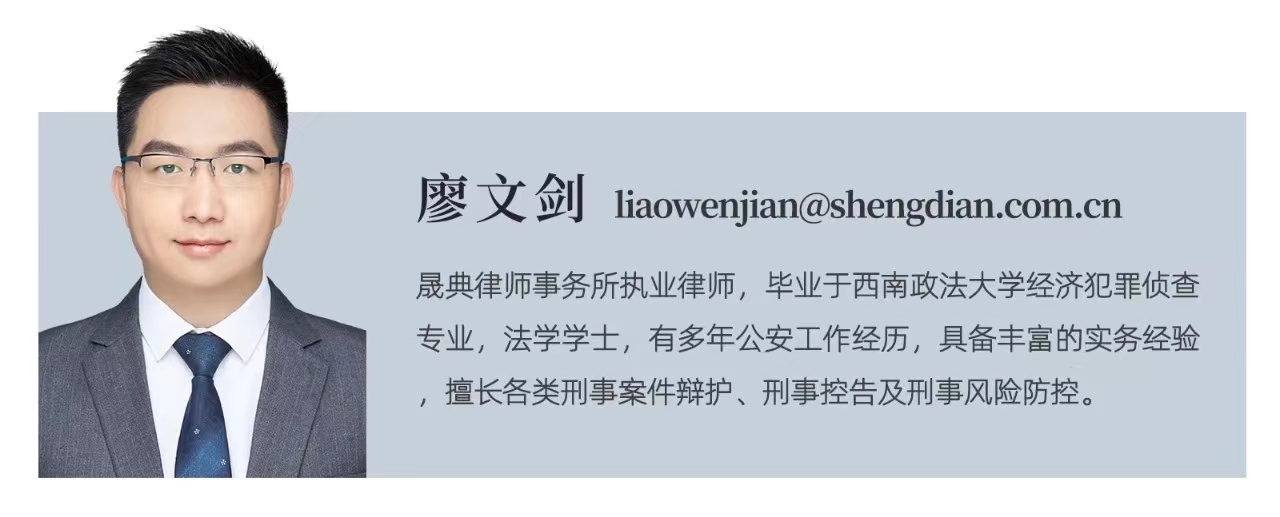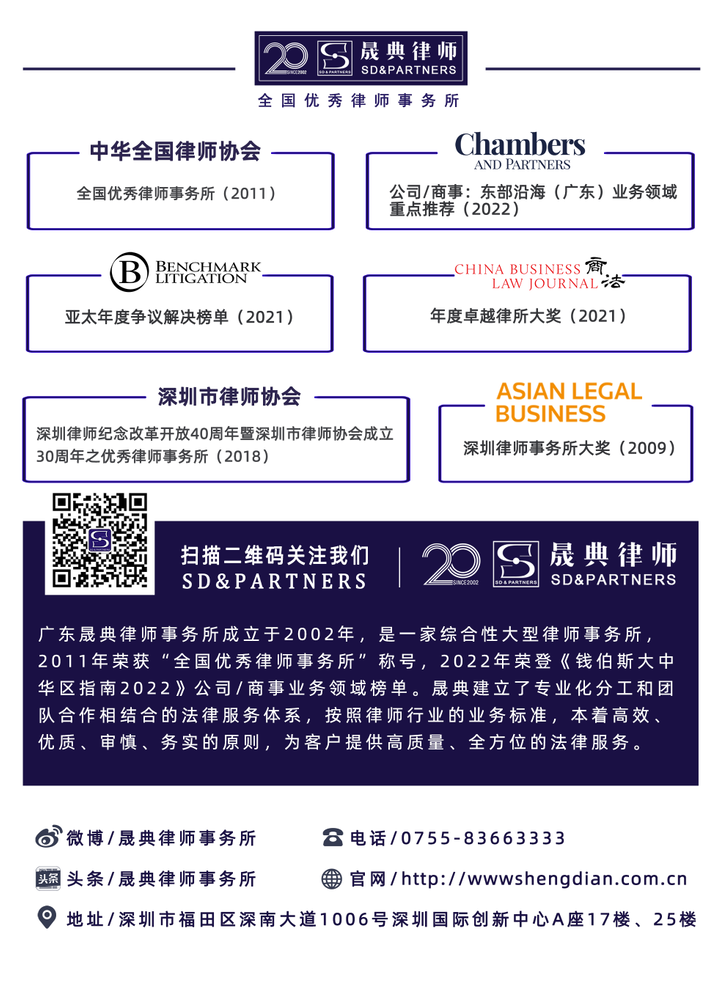Analysis of the nature of the "private detective" investigation in criminal practice
![]() Loading...
Loading...
![]() 2022.04.28
2022.04.28

In daily life, "private detective" (1) has always been a mysterious existence, and everyone is familiar with and unfamiliar with it. As an imported product, the development of "private detective" in China is only 30 years. For a long time, the profession of "private detective" has not been recognized by the government of our country, and there is some controversy about whether the investigation business violates the criminal law of our country. This paper tries to clarify and analyze the legal qualitative dispute of the investigation behavior of "private detective" from the perspective of criminal practice.
1. The development history and legal status of "private detective" in China
(I) from institutions to companies, "private detectives" survive in the cracks.
In our country, the emergence of "private detective" began in the 1990 s. In the early days, "private detective" institutions often existed in the names of "security affairs investigation office", "civil affairs investigation office" and "social and economic affairs investigation office". Their business scope covered civil and economic dispute acceptance, debt recovery, relatives and friends search, personal privacy investigation, etc. Due to the lack of relevant legal basis for these operations, part of the business scope conflicts with the division of functions of the existing national judicial organs, and some means of carrying out business violate the legal provisions, resulting in a series of social problems. To this end, the Ministry of Public Security issued the "Notice on Prohibiting the Establishment of Private Detective Offerings" (hereinafter referred to as the 1993 "Notice") on September 7, 1993, prohibiting any unit or individual from establishing a private detective agency. Private institutions, and to clean up and ban existing private institutions of the nature of private detective offices(2)。
Under the severe crackdown of the state, "private detective" agencies have changed their faces one after another, turning into various "investigation companies" or "consulting companies" (hereinafter referred to as "private detective" companies) by registering companies. Continue to exist in major and medium cities in our country. With the development of social economy, the public's demand for investigation and evidence collection in the aspects of capital credit, husband and wife loyalty, intellectual property rights, seeking people's address and finding things continues to grow, while the scope of relevant state organs using public power to conduct investigation and evidence collection is very limited. The investigation and evidence collection business provided by "private detective" company can just fill this gap. Therefore, although it is in the legal gray area, however, the "private detective" company is still developing steadily in our country.
(II) Investigation operations carried out by "private detective" companies and their patterns of behaviour
In terms of specific business, because these "private detective" companies often position their business scope in legal consultation, business investigation, market investigation, intellectual property consultation, enterprise financial consulting services, business investigation services, marriage information consultation, security system monitoring, network security information consultation and so on. In addition, the actual business does contain some legitimate and legitimate business, which leads to some difficulties in determining the legitimacy of such companies in practice.
Despite the various forms of packaging, the actual business projects carried out by the "private detective" company are still dominated by traditional businesses such as extramarital affairs investigation, addressing people, mobile phone information inquiry, and debt collection on behalf of others. among them, the investigation business represented by extramarital affairs investigation and addressing people is the core. In practice, the specific behavior mode of this kind of investigation business is: the client (customer) first signs the relevant entrusted investigation agreement with the "private detective" company, and then the client provides the basic information such as the mobile phone number, license plate number and address of the investigated person, then the "private detective" company will assign specific investigators (field personnel) to carry out the investigation by means of vehicle positioning, tracking squatting, secretly taking photos, secretly recording videos, inquiring about the room opening records and call records of the investigated persons, and providing the relevant information obtained from the investigation to the client after sorting and packaging to complete the investigation task.
The "congenital deficiency" of the investigation power of the "private detective" company determines that it inevitably needs to use illegal means such as positioning, tracking, secretly photographing and recording when carrying out the above-mentioned investigation. Whether it is the investigation process or the result, it will inevitably cause infringement on the privacy of citizens to varying degrees. Therefore, under the background that the country continues to increase the protection of citizens' personal information, it is inevitable that the nature of the investigation of "private detective" companies will rise from the administrative level to the criminal level.
二、The qualitative analysis of the investigation behavior of "private detective" in criminal judicial practice in China
At the level of criminal law, the relevant provisions on the crime of infringing upon citizens' personal information have gone through a process of continuous modification and improvement from scratch. Correspondingly, the nature of the investigation of "private detectives" in criminal practice has also changed from vague to clear.
(I) Before the (VII) implementation of the Criminal Law Amendment, my country lacked specific laws and regulations to regulate such investigations, and whether it constituted a crime was controversial
Before the (VII) implementation of the Criminal Law Amendment, my country did not have specific laws and regulations to regulate business investigations, and there was a lack of specific provisions on the protection of citizens' personal privacy at the criminal law level. Therefore, it is controversial whether the investigation activities carried out by "private detectives" constitute a crime. One view is that the investigative activities carried out by "private investigators" constitute crimes. The reason is that "private detective" institutions or companies engage in external investigation activities in the form of business operations. The investigation process is usually accompanied by illegal methods such as tracking and secretly shooting, which will not only infringe on the personal privacy of the investigated person, but also disrupt the market economy. Order and social management order have realistic and potential social harmfulness and should be recognized as constituting the crime of illegal business operations; another view is that, the investigation behavior of "private detective" institutions or companies originates from the entrustment of the client. The law does not prohibit the client from exercising the right of investigation on his own. Of course, the client should not be prohibited from entrusting the right to these institutions or companies to exercise it on his behalf. Therefore, the investigation behavior of "private detective" lacks definability in the sense of criminal law and should not be regarded as a crime. In addition, it is believed that the investigation behavior of "private detective" does not conform to the criminal constitution of the crime of illegal business operation, nor should it constitute the crime of illegal business operation.
In judicial practice, although such investigations are basically convicted and punished for the crime of illegal business operations, it should be noted that more "private detective" cases at this stage have not actually entered the vision of criminal law regulation, but are based on the 1993 "Notice" And other regulations, only to be cleaned up and banned at the administrative level.
(II) The Criminal Law Amendment (VII) adds provisions on crimes of infringing on citizens' personal information, which provides a legal basis for cracking down on the investigation of "private detectives"
The Criminal Law Amendment (VII), which came into force on February 28, 2009, added provisions on the crime of infringing upon citizens' personal information in Article 253 of the Criminal Law.(3)It provides a criminal legal basis for the investigation of "private detectives. However, because there was no corresponding legal and judicial interpretation on the scope of "citizen's personal information" at that time, there were different understandings of its meaning and scope of application in practice. in particular, there is a great controversy over whether the records of activities such as personal whereabouts belong to "citizen's personal information", which leads to differences in the determination of the nature of "private detective" investigation in practice. There are convictions and penalties for the crime of illegally obtaining citizens' personal information. For example, in the case of Li's illegal acquisition of citizens' personal information tried by the Wangcheng District People's Court of Changsha City, Hunan Province, the defendant Li used his "Hunan Three Win Investigation Affairs" web page registered on the Internet to publish to the society to undertake private detectives and marriage After investigating and other business advertising information, and purchasing personal information such as citizenship information, accommodation information, and mobile phone call details from others through Tencent QQ, sell it to the next family and make a profit from it. The act was eventually found by the court to constitute the crime of illegally obtaining citizens' personal information.(4);There are also convictions and sentencing for the crime of illegal business operations. For example, in March 2010, the People's Court of Chaoyang District, Beijing, sentenced Li and other four "private detectives" who illegally engaged in tracking, photographing, positioning and other activities with compensation for illegal business operations.(5)Another example is the case of Chen Moujia's illegal business operation tried by the People's Court of Licheng District, Quanzhou City, Fujian Province. The court found that the defendant Chen Moujia was making illegal profits and hired others to illegally operate "private detective" business, disrupting market order, and his behavior has constituted illegal business. Crime(6)。
The Supreme Court's "Criminal Trial Reference" No. 1007 Guidance Case holds that information such as the specific location, daily action track and activity place of a citizen involves the privacy and habitual contents of citizens such as home address, unit address, frequent places and so on. It has personal specificity and can reflect some personal characteristics of the citizen. Moreover, the information content is related to the basic security of citizens' daily life. The disclosure of information will make citizens lose their sense of security completely, it seriously affects their daily life. Therefore, the whereabouts of citizens belong to the "personal information of citizens" protected by the criminal law"(7).For the first time, the guiding case makes it clear that the information on citizens' daily activities obtained by illegally tracking the whereabouts of others belongs to citizens' personal information, which unifies the judicial judgment scale for the identification of "private detective" cases.
(III) Criminal Law Amendment (IX)(8)Further revised and improved the provisions on the crime of infringing on citizens' personal information, and the qualitative trend of "private detective" investigation behavior is clear
The (IX) amendment to the Criminal Law amended Article 253 of the Criminal Law, which not only added the crime of illegal sale of citizens' personal information to others by general subjects, but also expanded the scope of the criminal subject stipulated in the original first paragraph, and changed "violation of state regulations" to "violation of relevant state regulations", and stipulated the circumstances of heavier punishment.The (IX) amendment to the Criminal Law amended Article 253 of the Criminal Law, which not only added the crime of illegal sale of citizens' personal information to others by general subjects, but also expanded the scope of the criminal subject stipulated in the original first paragraph, and changed "violation of state regulations" to "violation of relevant state regulations", and stipulated the circumstances of heavier punishment(9).In terms of crimes, the original crimes of selling, illegally providing citizens' personal information and illegally obtaining citizens' personal information are unified into one crime of infringing citizens' personal information.
The Interpretation of the Supreme People's Court and the Supreme People's Procuratorate on Several Issues Concerning the Application of Law in Handling Criminal Cases of Infringement of Citizens' Personal Information (Fa Shi [2017] No. 10) clearly stipulates the meaning and scope of "citizens' personal information:" Citizen's personal information refers to all kinds of information recorded electronically or in combination with other information that can identify the identity of a specific natural person or reflect the activities of a specific natural person, including name, identity document number, communication contact information, address, account number and password, property status, whereabouts, etc." The provision makes it clear that the scope of citizens' personal information includes not only identification information, but also activity information.
With the revision and improvement of the above-mentioned legal provisions, the nature of "private detective" investigation activities tends to be clear. The identification of the crime of infringing on citizens' personal information in the investigation of "private detectives" has basically reached a consensus in judicial practice. For example: The People's Court of Yiwu City, Zhejiang Province held that the defendants Wang Haitao and Li Jiayun undertook the "private detective" business and used illegal means to provide others with personal information of citizens such as track information, accommodation information, property information, bank information, vehicle information, population information, etc. For profit, their behavior constitutes the crime of infringing on citizens' personal information(10);Defendant Zhou Lifeng was also sentenced by the People's Court of Shunde District, Foshan City, Guangdong Province for soliciting business and illegally operating private detective business in the name of "Shunde Yiniu Private Detective" on the Internet.(11)。
3. Analysis of the defense direction of "private detective" cases in criminal practice.
At this stage, the investigation of "private detective" has been included in the scope of criminal law evaluation. Although the determination of its nature tends to be clear, it should be noted that compared with the traditional crime of infringing on citizens' personal information, "private detective" cases have their own uniqueness.
In the traditional criminal occasion of infringing on citizens' personal information, after illegally obtaining citizens' personal information, criminals often make profits through multiple reselling. After being resold, these personal information fall into the hands of unspecified people in the society, and are extremely easy to be illegally used, which breeds illegal and criminal activities such as telecommunication fraud, network fraud, extortion and so on. Such criminal acts that infringe on citizens' personal information not only infringe on citizens' personal privacy, but also seriously threaten citizens' personal and property safety, which is extremely harmful to society.
However, the investigation business of "private detective" is carried out based on the entrustment investigation agreement signed with the client. The personal information of citizens obtained from the investigation is only provided to the client. However, since the client basically has a certain specific relationship with the investigated target (such as husband and wife, couple relationship) and the entrustment purpose is relatively clear (such as determining whether the partner is loyal, etc.), after the client obtains the relevant personal information, this information will not be spread for the second time, nor will it be used to carry out other illegal and criminal activities, so that the personal and property safety of the investigated person will fall into a high-risk state or cause substantial harm.
It is undeniable that the judgment scale of "private detective" cases in criminal practice tends to be unified, which objectively brings difficulties to the defense work of criminal lawyers, especially at the level of conviction, the defense space of lawyers in such cases is indeed getting smaller and smaller. However, at the sentencing level, in addition to digging out the traditional mitigating circumstances in specific cases, lawyers should combine the above-mentioned characteristics of "private detective" cases that distinguish them from traditional cases of infringement of citizens' personal information, and demonstrate the social harmfulness for the parties. Try more for lighter sentencing.
References
(1) A private detective, also known as a private detective, refers to a person engaged in civil investigation outside a government agency; a private detective agency refers to an agency that provides investigation services for civil and commercial affairs.
(2)The "Notice of the Ministry of Public Security on Prohibiting the Opening of" Private Detective Agency "Non-governmental Organizations" issued on September 7, 1993 decides:



